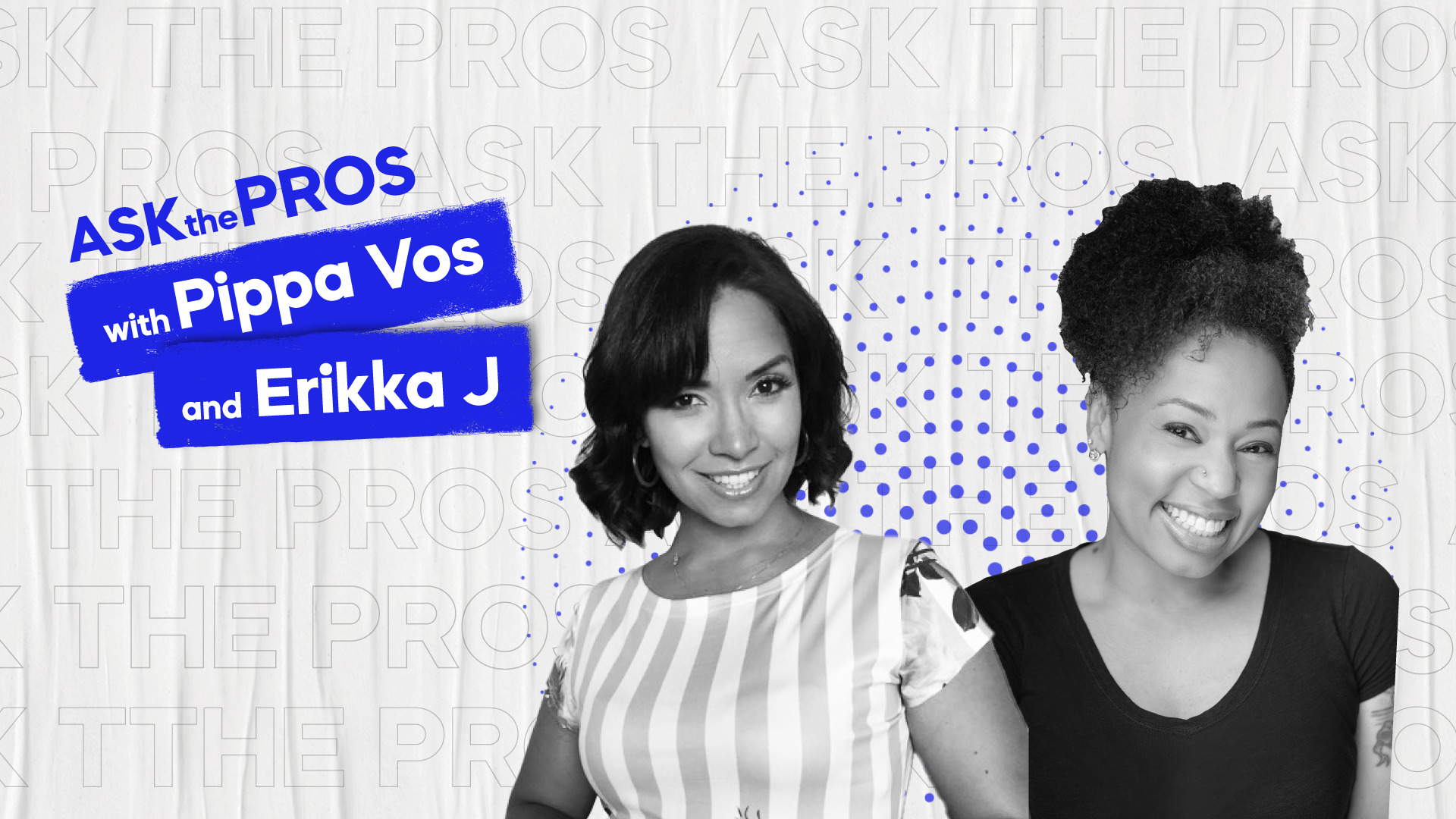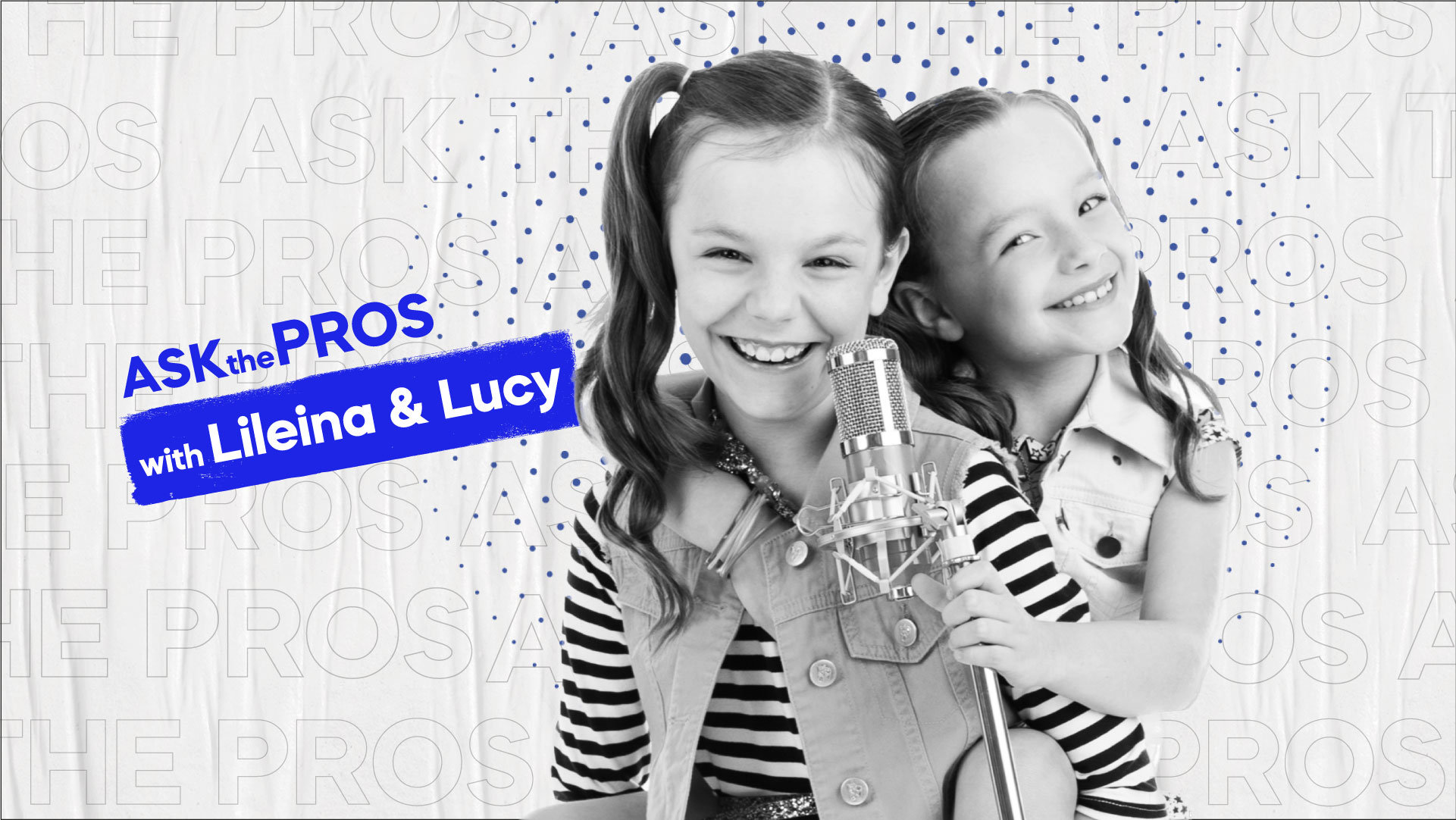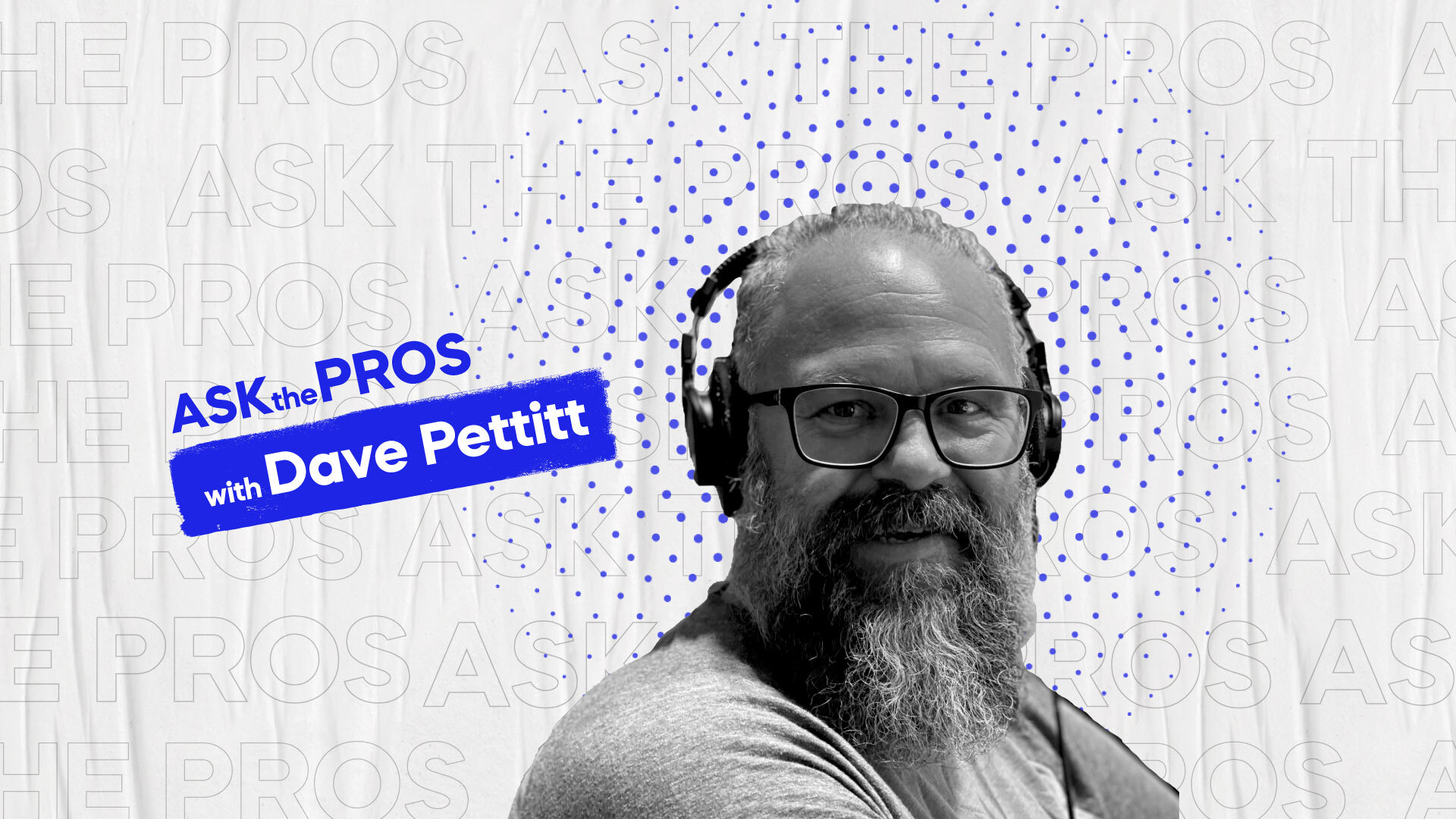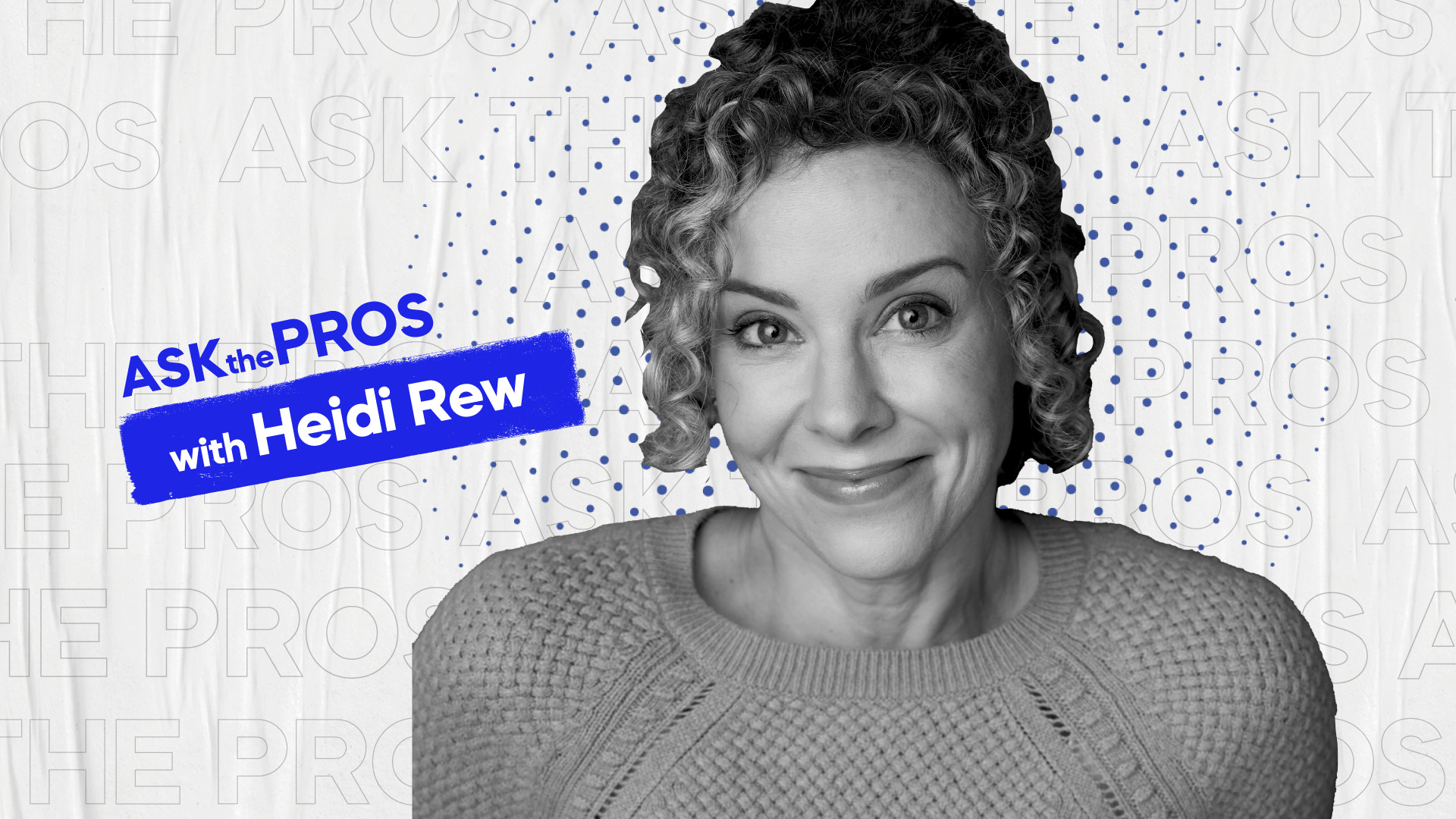
How to do a voice over
Ask the pros with Heidi Rew! Heidi shares advice on how to do a voice over, what you need to have prepared, and a step-by-step guide with practical tips.
Heidi, can you start us off by explaining what's involved in learning how to do a voice over?
Firstly, you need to know what you’re saying and why you’re saying it.
The trap with learning how to do voice overs is that you have the script in front of you. So, it’s easy to get lost in how you’re saying things versus why you’re saying them.
When my husband, Mike Stoudt, and I opened Atlanta Voiceover Studio that was one of the greatest observations when hearing people audition. Oftentimes, I’d ask a voice actor, ‘Can you tell me what you’re saying in your own words?’ But they wouldn’t have a clue, or they’d just repeat the words on the page.
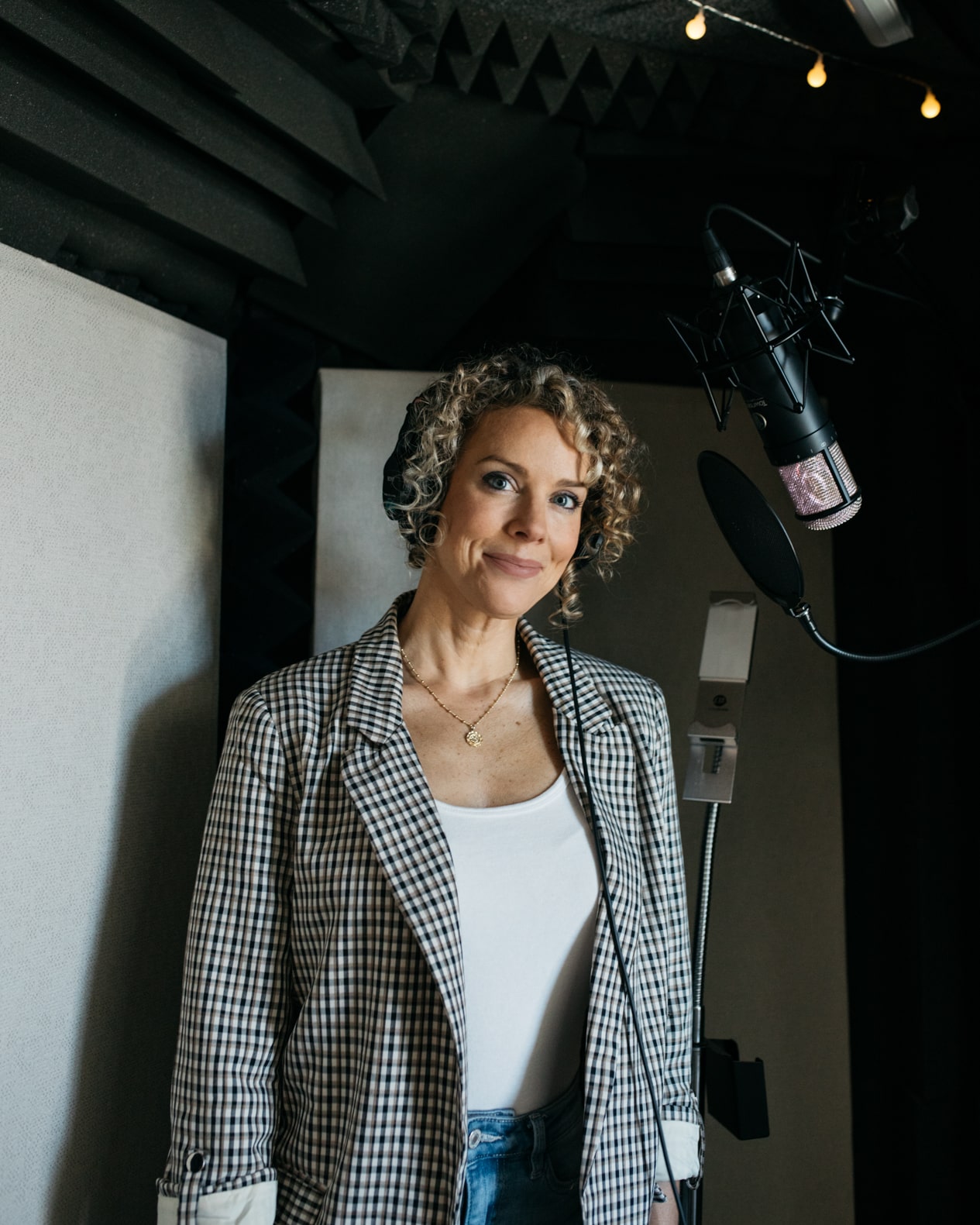
Saying something in your own words can really help you figure out what you’re saying. For example, you could read a voice over script a couple of times, then turn it over and share it with a friend. It doesn’t have to be a “live in living color” friend. Just imagine a friend standing in front of you and describe the script in your own words.
Awesome tips - and what do you need to have before do a voice over?
Besides a good home studio set-up, here’s what I make sure to have & do before I do a voice over:
- A water bottle with room-temperate water: This is the best way to combat mouth noise for me. Some people say green apples help, but that doesn’t really work for me and it’s not realistic to be downing green apples every single day. Although, I guess that would keep the doctor away!
- My phone or watch: I can get easily distracted by my phone, which I’m sure others can relate to. So, I try to keep it out of my sound booth. That’s what pushed me to get a Smart Watch. I wanted to be able to see if my agent was calling or texting without having to have my phone with me. The other reason I need a phone or watch is to time the voice over scripts. If the client has specified a time for the spot, I want to time myself doing the script for an idea of pacing.
Other than those two things, I make sure my microphone is set and everything is ready to record. For a booked job, I make sure to have the script pulled up and ready to be marked up or edited, if needed. If it’s a directed session, I make sure to join the connection early to ensure there are no issues.
Very practical advice. Could you also share a step-by-step guide on how to do a voice over?
- Read through the voice over script: Then turn over the script or minimize it on your computer. How would you explain what the script says in your own words?
- Determine intention. What is the client/brand’s intention? What do they want the listener to learn, understand, and do? This gives you an even deeper glimpse into the why of what you’re saying.
- Who are you talking to? Connection is key in doing voice overs. Whether it’s someone watching an e-learning video or sitting through a commercial on YouTube, you want them to feel like you’re talking directly to them. How do you do that? By choosing someone you know – to talk to when communicating the script. This needs to be someone you have a close relationship with. Someone you can talk to about anything. Who can you immediately imagine standing in front of you? Who can you be yourself around?
- Look at the details. Did the client specify a specific tone? What is the type of spot (commercial, industrial, e-learning)? What is the allotted time? Use those as a guide but remember it’s only your journey.
- Find the layers. Are there parts of the script that call for more empathy, humor, a wink, a hint of sarcasm, emphasis, or teasing? This is what sets voice actors apart. Just make sure what you do still aligns with the overall intention of the script.
- Prepare 2 strong takes. As you progress in your voice over career, you’ll be able to do this faster and more confidently. You want two takes or recordings that not only show your range but the potential range of the project. For instance, if the script is for sparkling water and they ask for a friendly read, you may want to do one that is more commercial (that friendly, upbeat, bright read) and one that is more natural and real (still friendly).
- Record and Edit. Now that the prep work is done, record your reads and edit.
Super helpful, Heidi! What about tips on how to do voice overs online?
Here’s what I take into consideration when doing voice overs on online casting sites:
- Time: Am I able to get my audition in, in a timely manner?
- Quality: Not only is it a quality audition and client but does it align with my strengths and goals? While it’s really fun for me to try and do the Viola Davis or Cate Blanchet-type auditions (if that’s what the script calls for), that’s not me. I’m more of a Kristen Bell type of sound. So, my goal is to find projects that fit me & my voice as well as my voice over goals.

So being authentic is vital! If you could put the 5 most important tips in a nutshell, what would those be?
I’m going to answer this in regard to how to have a successful sustainable voice over career.
1. Think Like a Gardener. Especially at the beginning, your goal should be to plant as many seeds as possible and nurture those. What I mean by that is do the training, connect with potential clients and create a good business foundation. Like a gardener, you will have times when things sprout and times when things lay fallow, but you will ultimately reap a harvest if you do the work.
2. Diversify. When you start out, diversify the areas and genres of voiceover you pursue. It’s helpful to have various streams of income and skills.
3. Create Mental Support. Part of my story is that it took me four years to book my first job with my agent. Four years of consistent auditioning before seeing anything payoff. It’s been over a decade since that first booking and my career has grown every year since, but there still are ups and downs. That does a lot to your mind. One of the hardest parts of having a sustainable voiceover career is mental fortitude. Go to a great therapist, surround yourself with supportive friends, and create healthy habits. These things will have a huge impact on the success and length of your career.
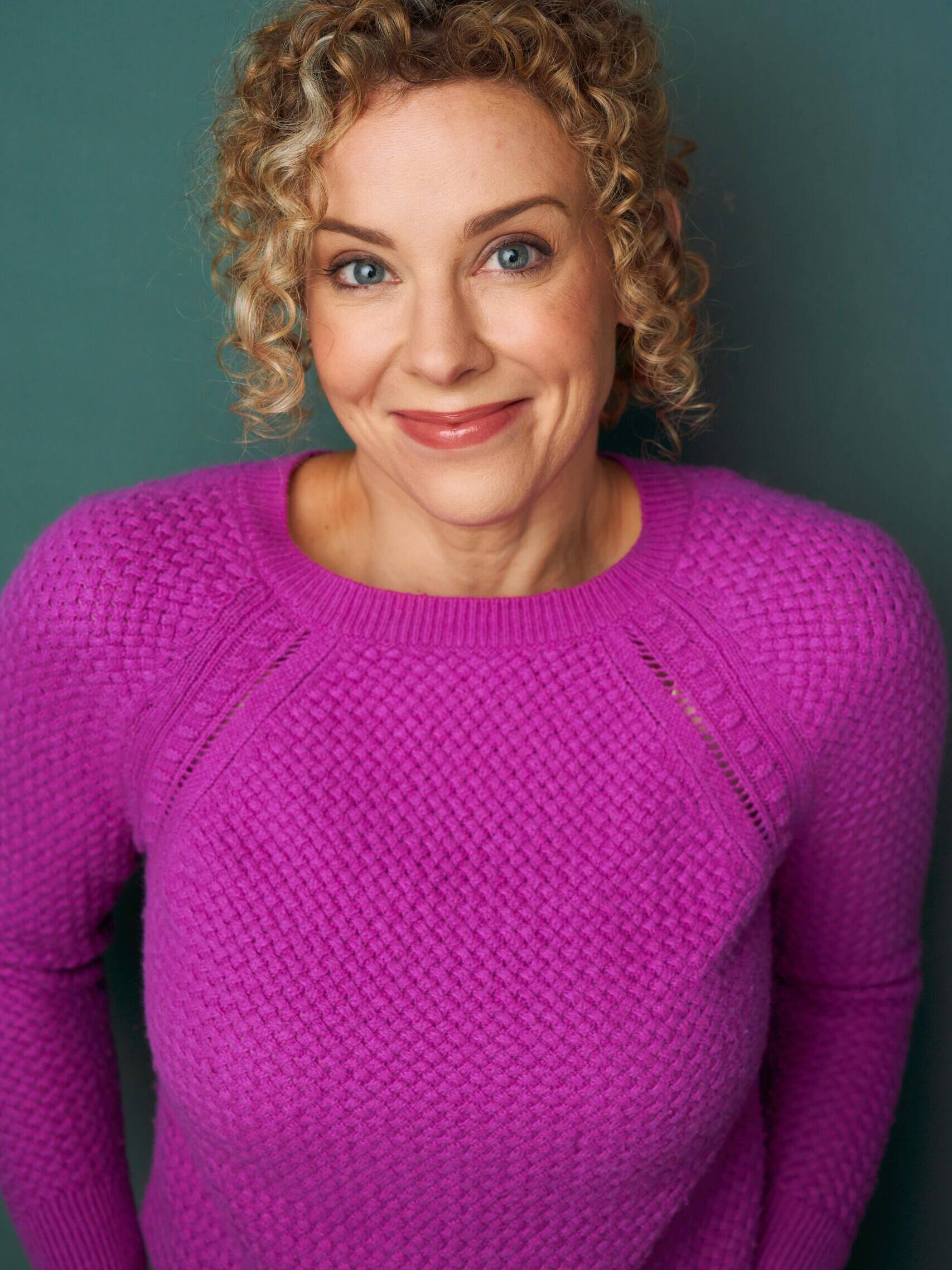
4. Know Yourself. While diversifying is great, you also should constantly be discovering the things you can do really well. Learn more about your voice, your perspective, and your skill. In a sense, voice acting is a product, and you can’t sell a product you don’t know.
5. Watch what you want. What I mean by this is always watch and listen to things you want to book. It helps you to understand the trends, the content, and how your voice can fit.
Those are really amazing pointers! Any last personal tips?
At this point in my career, it’s much easier to go through the “checklist” of things to think about before I do a voice over. But one of the biggest challenges I still face is my own mind. I can get caught up in trying to sound more like someone else or get caught up in the technical stuff that I forget to connect. So overall, I try to stay curious, eager to learn, and humble, while also confident in what I have to give.
There’s this phrase I heard from Angela Duckworth – “Don’t Quit on a Bad Day.” So, if you’re having a great day and still want to quit, then that’s probably a sign you should move on. It’s helped me get through days when I feel discouraged and I hope it helps you!
